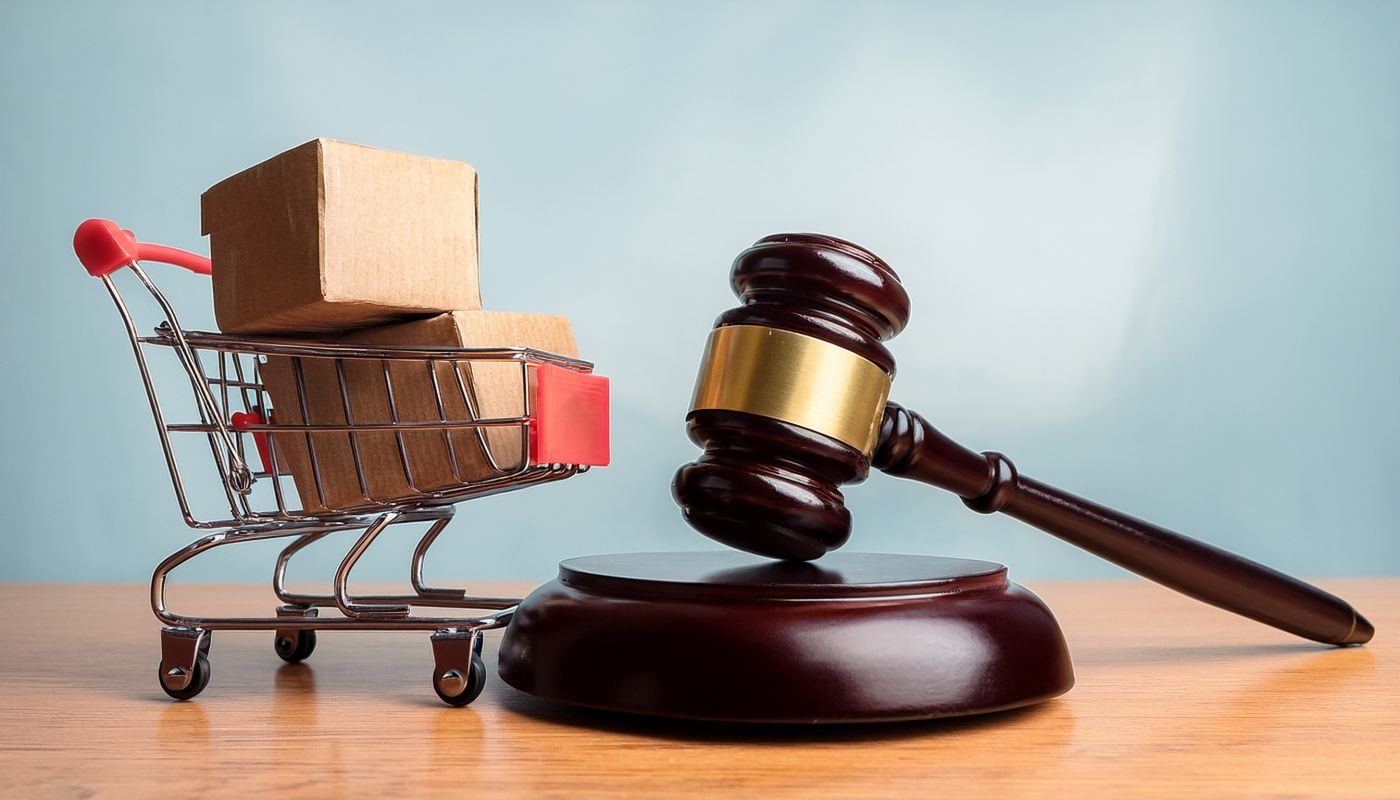
Every year, countless investors lose billions to securities fraud—victims of insider trading, market manipulation, and false financial reporting. These schemes don’t just drain individual savings; they undermine trust in financial markets and shake the very foundation of economic stability.
While legal recourse is crucial, regulatory agencies play an equally critical role in exposing fraud, holding perpetrators accountable, and restoring faith in the system. Their role includes enforcing securities laws, investigating suspicious behavior, and holding violators accountable.
By creating a guideline for accountability and transparency, these agencies not only safeguard investor interests but also reinforce the integrity of financial markets. Understanding how these agencies operate and contribute to preventing securities fraud is essential for both investors and professionals in this area of law.
At the Scott Hirsch Law Group in South Florida, our securities fraud lawyer recognizes the profound impact this type of fraud can have on investors, and we’re committed to helping clients seek justice through civil litigation. Understanding securities fraud and knowing how to protect your rights is critical to safeguarding your financial future.
How Securities Fraud Impacts Investors
Securities fraud can have devastating consequences for both individual investors and institutional stakeholders. At its core, this fraudulent activity involves providing false or misleading information to manipulate investment decisions. For victims, the fallout is often catastrophic, leading to substantial financial losses and long-term economic hardships.
Consequences of Securities Fraud
Securities fraud creates ripple effects throughout financial markets.
Significant financial losses: Investors may lose their life savings, retirement funds, or planned future income. This can derail financial goals and cause long-lasting economic stress.
Erosion of investor confidence: When fraud is exposed, it undermines trust in the financial system. This discourages investment and reduces overall market activity.
Legal consequences for businesses: Companies implicated in securities fraud can face lawsuits, reputational harm, and the loss of shareholder confidence.
When securities fraud occurs, addressing its consequences often requires intervention by both regulatory agencies and civil litigation attorneys who can help investors recover losses.
Key Regulatory Agencies Combatting Securities Fraud
To maintain the integrity of financial markets, several regulatory agencies are tasked with creating, implementing, and enforcing securities laws. Each agency has a unique jurisdiction and focus, yet their combined efforts create a robust defense against fraudulent activities.
Securities and Exchange Commission (SEC)
The SEC is the primary federal agency responsible for regulating securities markets in the United States. It plays a critical role in detecting, investigating, and punishing fraudulent activities.
Enforcing securities laws: The SEC investigates cases of insider trading, accounting fraud, and market manipulation to maintain fair practices.
Overseeing financial disclosures: By requiring companies to provide accurate and transparent information, the SEC helps protect investors from misleading statements.
Conducting audits and inspections: Regular examinations of financial practices enable the SEC to identify and rectify violations before they escalate.
The SEC’s efforts are indispensable in fostering trust among investors and securing a level playing field for all market participants. Through its whistleblower program, the agency empowers individuals to report misconduct, further strengthening its enforcement capabilities.
Financial Industry Regulatory Authority (FINRA)
FINRA is a self-regulatory organization that governs brokerage firms and individual brokers. Its focus is to safeguard the interests of retail investors by holding brokers to high ethical and professional standards.
Licensing and registration: FINRA makes sure brokers are qualified and adhere to legal and ethical guidelines.
Enforcing compliance: Brokerage firms must operate within established rules to protect clients’ investments.
Arbitration and mediation: FINRA provides dispute resolution mechanisms to help investors recover losses without lengthy litigation.
By maintaining oversight of broker-dealers, FINRA helps reduce instances of fraud and unethical behavior in retail investment markets.
Commodity Futures Trading Commission (CFTC)
The CFTC focuses on regulating derivatives and commodities markets. Its mission is to foster open, transparent, and financially sound markets while protecting investors from fraud and manipulation.
Monitoring market activities: The CFTC identifies suspicious trading patterns that may indicate fraudulent schemes.
Regulating complicated financial instruments: Assuring fair practices in derivatives trading is a key focus for the CFTC.
Pursuing legal action: When fraud is detected, the CFTC works to penalize violators through enforcement actions.
By targeting fraud in commodities and derivatives markets, the CFTC complements the SEC’s efforts and broadens the scope of investor protection.
How Regulatory Agencies Detect Fraud
Regulatory agencies rely on advanced tools and collaborative strategies to detect and address securities fraud. This proactive approach prevents fraud from escalating and reduces harm to investors.
Detection Methods
Agencies use several methods to identify and investigate fraudulent activities:
Surveillance programs: Cutting-edge technology allows agencies to monitor trading activities and detect unusual patterns. These systems are instrumental in identifying potential violations in real-time.
Whistleblower programs: By incentivizing individuals to report misconduct, agencies can uncover fraudulent schemes that might otherwise go unnoticed.
Collaboration with other organizations: Many cases of securities fraud involve multiple jurisdictions. Regulatory agencies work with domestic law enforcement and international counterparts to coordinate investigations.
When combined, these efforts create a robust system for identifying fraudulent activities early, which minimizes the financial and emotional toll on investors.
Enforcement Actions and Penalties
When regulatory agencies uncover securities fraud, they take enforcement actions designed to hold violators accountable and deter future misconduct.
Types of Enforcement Actions
The penalties imposed by regulatory agencies are critical in maintaining market integrity.
Cease-and-desist orders: These immediate actions stop fraudulent practices in their tracks, preventing further harm to investors.
Civil penalties and fines: Financial penalties serve as both punishment for violators and a warning to others.
Restitution orders: Agencies may require fraudsters to repay victims, helping recover lost funds.
Criminal prosecutions: For severe violations, cases are referred to law enforcement agencies for criminal charges.
These actions send a clear message that fraudulent activities won’t be tolerated, reinforcing public confidence in financial systems.
How Legal Representation Impacts Securities Fraud Cases
While regulatory agencies play a significant role in combating fraud, investors often need private legal representation to recover their losses and seek justice. This is where a civil litigation lawyer becomes invaluable.
How a Lawyer Can Help
The support of an experienced civil litigation attorney is crucial for securities fraud cases. Lawyers assist clients by:
Evaluating claims: Determining the viability of the case and potential legal avenues for recovery.
Gathering evidence: Building a solid argument based on financial documentation and helpful analysis.
Negotiating settlements: Working toward fair compensation without lengthy court proceedings.
Representing clients in court: When necessary, lawyers advocate for their clients before a judge or jury during civil litigation.
The Scott Hirsch Law Group is dedicated to providing the legal support victims need to hold wrongdoers accountable and secure compensation.
Preventing Securities Fraud Through Public Awareness
Prevention is a critical aspect of the fight against securities fraud. Regulatory agencies work tirelessly to educate the public and equip investors with the tools to avoid becoming victims.
Public Awareness Initiatives
By promoting transparency and investor education, agencies aim to reduce instances of fraud.
Investor education programs: Agencies offer workshops, online courses, and resources to help individuals make informed decisions.
Public alerts: Timely warnings about fraudulent schemes enable investors to protect themselves from emerging threats.
Transparency initiatives: Encouraging companies to provide clear and truthful information builds trust in financial markets.
Empowering investors through education is one of the most effective ways to combat fraud and protect financial security.
Speak to a Securities Fraud Lawyer
Our firm provides civil litigation services to protect investors and pursue justice against those responsible for fraudulent activities. We proudly serve clients nationwide and are dedicated to helping victims recover from financial misconduct. Contact the Scott Hirsch Law Group today to discuss your case.



